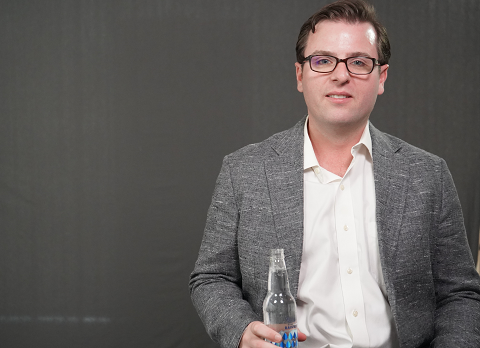Small Biz Insider: 5 Takeaways from Taylor O’Neil, CEO of Richard’s Rainwater
Published May 29, 2019 by Maggie Martin
The Small Biz Insider podcast is part of a digital series from the Greater Houston Partnership, where we highlight the innovative business owners, entrepreneurs and leaders of the greater Houston area making a big impact in the small business community.
On this episode of Small Biz Insider, host Maggie Martin sits down with Taylor O’Neil, CEO of Richard’s Rainwater, the country’s first company to bottle clean rainwater into sparkling and still varieties.
Here are 5 takeaways from our conversation with Taylor O’Neil:
- Sustainability is a priority for businesses right now. It’s important to consumers, as well, and they’re willing to pay for it. O’Neil said sustainability is a crucial part of the business model for the consideration of future generations as the world continues to commercialize and industrialize.
- Bottled rainwater and craft beer go hand in hand. Richard’s Rainwater has developed a model of capacity expansion that’s focused on partnerships with breweries. O’Neil said 70% of the breweries that exist today did not exist 3 years ago, and the craft beer market continues to grow 3-4%, so there’s a lot of new entrants that require lots of capital expenditures required to bottle beer. Richard’s Rainwater fits alongside that equipment, which reduces the capital cost for them and makes the brewery they partner with more sustainable.
- Hustle is crucial for companies that rely heavily on distribution. O’Neil said in order to sell your product to supermarkets and restaurants, you have to figure out a way that your product fits in their business model. Do you have something their customers want? If so, it doesn’t matter how small you are – you’re going to get some attention.
- Relationships are vital to growing your business. O’Neil said his early days with the company entailed driving around Austin with a full Yeti cooler of Richard’s Rainwater products and pitching to businesses in person. That hustle and passion for the product is the starting place for most people, but business owners and entrepreneurs have to leverage small interaction into bigger ones.
- There’s no magic one-stop shop for small business strategy. You as an owner or entrepreneur have to figure out what your unique selling points are and connect with others who share that same passion. Figuring out where you fit in the ecosystem and what value you bring to the consumer is the crux of every good business strategy.
Listen to this and other episodes of the Small Biz Insider podcast here. Learn more about the Partnership's other small business resources.
Subscribe to Small Biz Insider through these popular podcast players:
Listen on Apple Podcasts Listen on Google Podcasts Listen on Spotify
 The Houston Report
The Houston Report




















